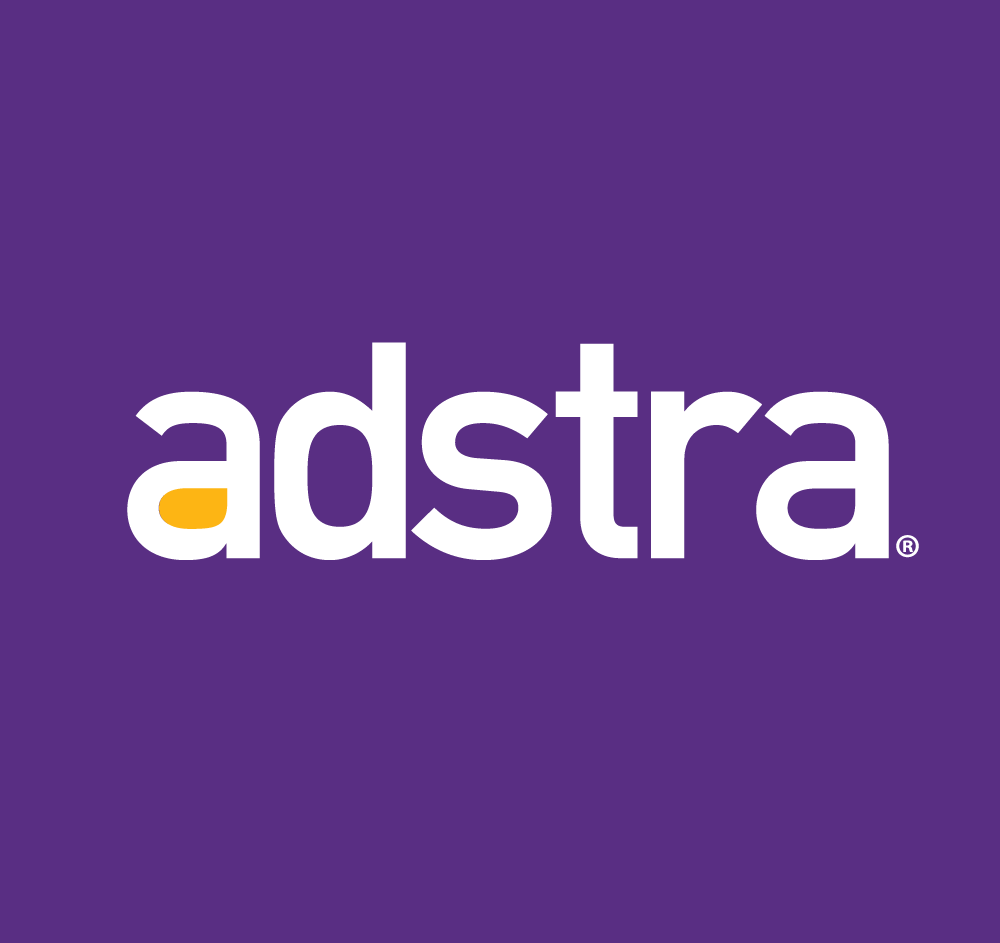“Innovation is the ability to see change as an opportunity – not a threat.” – Steve Jobs
This Month’s Update:
If you have not taken notice, the battle between government and Big Tech is heating up as we make the turn into Spring. This is not just a US movement, but a global one. Leading the way is the announcement by the European Union who agreed last week to the new Digital Markets Act (DMA), one of the most aggressive and broad laws focused on limiting the control and power of Big Tech, or what might be called the digital “gatekeepers,” in their ability to control how the digital media ecosystem works. This includes online advertising, e-commerce, app stores, messaging services and many of the digital tools and platforms consumers use every day.
The fundamental message being delivered is that the Googles and Apples of the world have to enable a fair and open set of alternative solutions to their integrated digital ad and data tracking solutions. Solutions that let smaller players compete in the space. Right now, Google and Apple, through their App Stores and web interfaces are dictating the rules of engagement on their terms.
Under this new law, this will no longer be the case. Where GDPR created client facing constraints, this new law goes to the foundation of how the digital ecosystem works. The next step in the EU’s effort to free up and clean up the internet is to enact laws that hold Big Tech accountable to the content being shared on their platforms. Facebook, Instagram, Twitter…. All would be required to police the content and limit the risk of the spread of false or hateful speech. First up is to get the DMA legislation passed.
While the EU is moving quickly to take action, here in the US we are making slower progress as the two political parties continue to bicker over the appropriate level of oversight. That being said, as we saw with GDPR and the impact it had on accelerating limits on online data collection, where Europe leads, the rest of the globe is relatively quick to follow. As we have noted in previous newsletters, we are already seeing numerous states step up to start enacting laws that go to data privacy and sharing. Now our challenge in the US is the battle between individual state regulations and the establishment of a national policy at the federal level.
Privacy highlights:
In his State of the Union address, President Biden said, “we must hold social media platforms accountable for the national experiment they’re conducting on our children for profit. It’s time to strengthen privacy protections; ban targeted advertising to children; demand tech companies stop collecting personal data on our children.” Senator Ed Markey and Representative Kathy Castor focused on the opportunity to move legislation focused on children’s privacy while Republicans called for action on a comprehensive data privacy bill. Senator Roger Wicker said he stands ready to work “to pass bipartisan, comprehensive legislation that protects the data privacy and data security of all Americans, including teens and children.” Representative Cathy McMorris Rodgers said she welcomed Biden “joining our call” for children’s privacy legislation and she urged House Democrats “to stop dragging their feet and prioritize comprehensive privacy legislation.” Privacy for America welcomed the President’s interest in data privacy legislation and said it looks forward “to working with the Administration and lawmakers of both parties to make a comprehensive privacy law a reality in the United States.” The White House provided additional context for the statement in a fact sheet on the address. Bloomberg, MediaPost, The New York Times, The Washington Post, Politico, and other outlets covered the news.
The House Energy and Commerce Subcommittee on Consumer Protection and Commerce held a hearing on “Holding Big Tech Accountable: Legislation to Protect Online Users.” MediaPost reported on opposition the Banning Surveillance Advertising Act by IAB, NAI, and ANA. “The legislation would essentially make it illegal to use data for advertising purposes, something that would destroy American jobs and the U.S. economy that are tied to data-driven advertising,” said IAB’s Lartease Tiffith. “The language is so broad, it’s unclear whether it would affect any business with an online customer relationship. Without the advertising dollars that support it, anyone who uses the internet could lose the free search, email, news, entertainment and other services they currently enjoy. The free and open internet would dramatically change for the worse.” He added, “Instead, IAB recommends Privacy for America’s basic principles for data protection, a federal privacy law that sets guidelines, and stronger enforcement by the FTC.” “Congress should enact a data privacy law that provides a complete regime rather than banning a legitimate and constitutionally protected business practice. We therefore urge you to reconsider the proposed bills’ overly restrictive approach to advertising and instead adopt more well-balanced models for preemptive federal data privacy legislation, such as Privacy for America’s Principles for Privacy Legislation, which the ANA strongly supports,” ANA’s Chris Oswald wrote. “The NAI supports a national privacy framework that protects consumers, bans certain uses of data, and allows for innovative uses of data for advertising and the social good,” NAI’s Leigh Freund said. Bloomberg Law also reported on the hearing.
The Senate Commerce Committee deadlocked for the second time on a vote to advance the nomination of Alvaro Bedoya to serve as FTC Commissioner. Despite the 14-14 vote, the nomination could reach the Senate floor if procedural motions are passed by the full Senate.
Senator Ed Markey renewed his push to pass legislation that would prohibit companies from collecting data from teens younger than 16 without their opt-in consent in a speech at the Internet Education Foundation’s annual State of the Net event. Markey said passage of the bill would require “courage” comparable to that of Ukrainian President Volodymyr Zelensky.
TechNet argued that enacting a federal data privacy law is preferable to other legislative approaches that would target the tech sector.
The American Action Forum encouraged Congress to resolve problems created by a patchwork of state data privacy laws “by moving forward with a national framework to create a single unified standard for privacy.”
The Florida House passed data privacy legislation that includes a privacy right of action. Associated Industries of Florida warned that the measure would result in “substantial compliance, operational, and potential private litigation costs” for Florida companies. “We support putting regulatory safeguards in place to prevent bad actors from trading in the misuse of consumer data. However, House Bill 9, as passed by the Florida House today, also targets legitimate businesses who responsibly use consumer data to the benefit of those consumers.” The Reason Foundation wrote that the bill would harm consumers and business. The American Conservative Union and Consumer Reports supported the bill. Senate committees have not considered the bill this session.
Utah’s Senate passed a data privacy bill that would be enforced by the state Attorney General. The bill was subsequently approved in the House and now heads to Governor Spencer Cox for signature. Several consumer groups plan to ask the Governor to veto the bill, as they do not believe it is strong enough.
4A’s, AAF, ANA, IAB, NAI, and the DAA opposed data privacy legislation being considered in Connecticut. The Connecticut Restaurant Association, Connecticut Retail Merchants Association, and other business organizationsalso opposed the bill considered in a state Senate committee. Comcast voiced concerns about global privacy control provisions and asked to delay implementation of that provision in the bill.
A national Morning Consult/Politico poll found that 76% of respondents support or strongly support legislation requiring social media platforms to give minors options to protect their data and 70% support or strongly support legislation requiring social media platforms to give minors options to delete their personal data. Seventy-seven percent support or strongly support legislation requiring social media platforms to stop showing minors targeted advertising based on personal data they have collected.
An article for Vox argued that the federal focus on children’s privacy creates unintended consequences and shifts the focus from providing protections for all Americans.
Protocol highlighted that the FTC has required three companies in the last three years to destroy algorithms as part of settlement agreements.
A new report on the CCPA found that data subject requests nearly doubled from 2020 to 2021 from 137 to 266 requests per 1 million identities. Data deletion requests also nearly doubled to 84 deletion requests per 1 million identities in 2021. The report also cited Gartner research that suggests that businesses spend approximately $1,524 dollars to process a single data subject request, and separately found that on average, the team member charged with executing such requests spends 2-4 months (60-130 hours) in a year sustaining compliance. The cost of processing data subject requests doubled year-over-year from $192,000 per 1 million identities to roughly $400,000 per 1 million identities year-over-year.
Florida Politics reported that state data privacy legislation is “dead for the second year in a row.” Florida Tax Watch recently updated its economic impact analysis of pending legislation. “Our research indicates the impacts could be significant, with initial compliance costs between $732,000 and $2.5 million for a single affected firm and up to $21 billion economy-wide. On top of this, between the two bills, Florida companies would be at risk of financially motivated and malicious lawsuits; smaller, less equipped businesses would experience pressure to adopt data privacy measures in order to remain competitive; and those covered would have inadequate time to prepare the technical infrastructure needed, possibly resulting in noncompliance and costly litigation for failing to respond,” the group concluded.
Politico noted industry support and consumer group opposition to Utah’s data privacy bill. Axios and Bloomberg Law also covered the Utah bill and advocacy for reasonable state privacy bills.
Legislators in Maine are considering a proposal to amend the state Constitution to add a right to privacy. The proposal, which would need to be approved by voters, states, “All natural persons have an inherent right to privacy that is free from governmental and private intrusion. The inherent right to privacy includes but is not limited to privacy of a natural person’s personal life, personal communications, private affairs and personal thoughts or inner life. A natural person’s interaction with an Internet, communication or other electronic data service does not diminish the natural person’s reasonable expectation of privacy.”
Oklahoma state Representative Collin Walke, author of an opt-in data privacy bill, encouraged members of the International Association of Privacy Professionals to educate legislators considering data privacy legislation.
The SEC proposed regulations that would require publicly traded companies to disclose data breaches and other significant cybersecurity incidents within four days.
We encourage you to also visit our content blog where you can get the latest news and thoughts on industry issues. While you are there, please also check out our website to gain a clearer understanding of Identity, Data, and all the services we have to offer.
Should you look for more help on these topics, please reach out and we would be happy to help. Email us at connect@adstradata.com

Our insights are again only a small fraction of what is being shared out there. Here are some other interesting articles and opinions we thought to share to both inform and inspire discussion.
Citing that the offer undervalued its offerings, Nielsen recently rejected a $9B buyout offer from by a private-equity consortium, led by Elliott Management Corp. Good thing they did as Evergreen Coast Capital and Brookfield Business Partners stepped in this week with a $16B offer that Nielsen has accepted. Nielsen has been facing significant challenges in its measurement offerings with the shift to streaming TV and advertisers pushing to consider alternatives to establish new effective ways to track advertising audiences.
Nielsen accepts $16B Private Equity offer
So with Nielsen on the ropes a bit, advertisers want to find an alternative. But to do so requires not just measurement but also currency. To understand the differences between these two terms is to understand why Nielsen has been hard to swap out. Check out Michael Burgi’s recent piece in Digiday on what the terms mean.
What is the difference between measurement and currency
Don’t get too comfortable with the Google Analytics of today. It’s time for a change… out with the old and in with the new as Google announces its shift to GA4 in July of 2023
Google Analytics sunsetting old versions
Michael Neveu had some helpful thoughts in his recent piece in AdAge on how brands could and should be protecting their own data. If you have not heard, first party data is where it’s at.
How brands can guarantee they own their own data
And in case you missed it, we published an interesting discussion piece on how all true identity resolution is probabilistic… It’s important to recognize given how easy it is to connect your message to the wrong individual if you are not careful.
All identity resolution is probabilistic
We are always very proud of the innovation of our partners. If you did not see Cox Automotive’s recent presentation at NADA, they are transforming how the advertising ecosystem in the automotive space can work going forward. Through a new approach to data intelligence, advertisers have a deeper and unified insight into the consumer, market, and vehicle that advertisers can use to optimize their campaigns.

We can all use a little positivity and fun in life. Here are some of the recent items we wanted to share with everyone:
It’s time for baseball, hotdogs, and apple pie once again. After one of its longest labor disputes, players and owners have come together to bring back baseball for us all. But not everything is back the way it was. Baseball has made some significant changes to the game heading into 2022. Can anyone say National League DH?
Before we head into baseball season, we still have some college basketball left.
On the men’s side, who cannot be thrilled by all the upsets and upstarts. The truly exciting news is that the NCAA is finally getting it right on the women’s side. Did you know this is the first year they are referring to the women’s bracket as “march madness” too?
NCAA Women’s Basketball Tourney
As we slowly return back to a sense of normalcy, travel is something we are all returning to as well. And while air travel may be taxing at times, check out the TSA’s Instagram account if you are looking for a little lighthearted fun.
TSA has the funniest Instagram
If you like what Adstra has to share or want to learn more about what we do, please visit our website at Adstradata.com or follow us on LinkedIn @Adstra, Twitter @Adstradata or Facebook @Adstradata. We welcome you to the new ideal.



